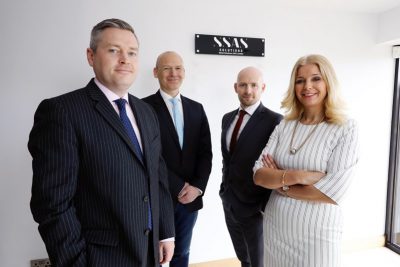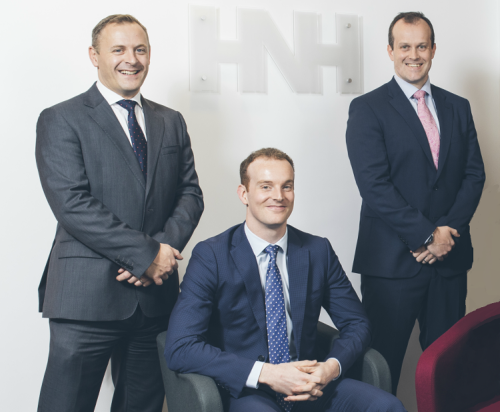The past months have had a deep
and lasting impact for all of us. In February, the terms social distancing,
furloughing and COVID-19 were almost unheard of and now they are part of our
everyday ‘virtual’ lexicon. The world has tilted on its axis and life for all
of us has changed. Indeed for many the enforced extra down time will have
provided an opportunity for some strategic thinking and planning for the future;
entrepreneurs and business owners may well have turned their thoughts to the
possibility of selling up, cashing in or moving in a different direction. For
those who are contemplating such a move (even if they don’t want to admit it!)
the next question is how might they go about it?
When a decision has been made to
sell/exit a company, one needs to consider the options, select the most
suitable one, prepare a comprehensive plan and implement the plan accordingly.
While most business owners will recognise this process as being part of their everyday
business makeup, when it comes to actually selling your company/business, the
big difference is that most people only do this once or by exception a couple
of times in their lifetime and thus it is not a process that they are entirely
familiar with. So what are the key
factors to consider?
If the decision has been taken to sell, then the first key factor is to work out who is going to buy the business. In an article last year we discussed the various exit routes that are typically open to shareholders. For many businesses, taking them to market via a trade sale process is the preferred option, in that, more often than not, it results in the highest valuation being achieved.
However, as we embark on what
will likely be a lengthy recovery period post-COVID, it may be that for some
businesses a trade sale is no longer the best direction. Prospective buyers may
be preoccupied with their own internal issues, or may approach M&A activity
with an opportunistic mindset unlikely to lead to an acceptable valuation for
the seller.
In these circumstances, it is
therefore more important than ever to weigh up the alternative options. Four that
we will examine in more detail are: the Management Buy-out; the Management Buy-in;
the Employee Buy-out and the Members Voluntary Liquidation.
The Management Buy-Out (MBO)
In its simplest form an MBO, is a
deal in which members of the company’s incumbent management team acquire all of
or a controlling stake in the business from the existing shareholders.
Typically, this involves the creation of a new company (Newco), which is used to
acquire the shares (or in some cases the trade and assets) of the trading
company.
Typically, the MBO team will not
have access to sufficient personal resources to complete the deal with a full
cash consideration. Depending on the nature of the business, the long-term
growth strategy and how much the team can commit personally, it may be possible
to bridge the gap by bringing in external funders such as a PE fund, debt fund,
or bank. Equally, it may be possible for the vendor(s) to part-finance the deal
via deferral of a proportion of the consideration or via loan notes in Newco.
There are quite a few tax
considerations in an MBO, not only for the existing owner but also for the
management team and the buyout company. The vendors will want to ensure that
they qualify for capital gains tax treatment in respect of the proceeds they
receive and also maximise their entitlement to Business Asset Disposal Relief
(‘BADR’, previously known as Entrepreneurs’ Relief). This is now only available
for gains of up to £1m but still saves £100,000 in tax per qualifying
shareholder. If they are going to retain a minority interest in the company or
help finance it via loan notes then the share for share/loan note exchange
rules can come into play and a pre-transaction clearance from HMRC is strongly
advised to ensure that the anti-avoidance rules will not be applied so as to
treat the transaction as being subject to income tax. On top of this there may
be a need to elect to dis-apply the share for share/loan note rules in certain
circumstances if this could lead to a loss of entitlement to BADR. The MBO team will also need to be mindful of
the tax legislation that applies to employment related shares and they may also
need to consider making certain elections to avoid future exposure to income
tax arising on the ultimate sale of their shares in the buyout company. It
would therefore be important to have all of these matters considered and
planned for prior to completing the MBO.
The
Management Buy-In (MBI)
An MBI can be viewed as a hybrid
of an MBO and a trade sale in that an external team acquires the business from
the existing shareholders. To all intents and purposes the structure of an MBI
is the same as for an MBO: a Newco will be established as the acquisition vehicle,
it will raise the necessary finance to execute the deal and ultimately acquire
the business.
The funding options for an MBI
are the same as for an MBO in that the team will typically need to augment what
they can bring to the table with some third party funding. That said, it can be
more difficult to raise finance for an MBI as, by definition, it involves an
external team taking over the business and funders are often concerned that a
lack of familiarity with the business, or cultural clashes with staff can
increase the risk of post-completion setbacks.
The tax considerations for the
vendors will be similar to those noted above in respect of the management
buyout in that the sellers will want to ensure that they qualify for capital
gains tax treatment in respect of the proceeds they receive and also maximise
their entitlement to BADR. Once again, if they are going to retain a minority
interest in the company or help finance it via loan notes then a pre-transaction
clearance from HMRC is strongly advised in respect of any share for share/loan
note exchange. Also the vendors may wish to elect to dis-apply the share for
share/loan note rules in certain circumstances if this could lead to a loss of
entitlement to BADR. As the MBI team (which
may include some of the existing management) will become employees, they will need
to take account of the employment related share rules, which may entail making an
election to avoid future exposure to income tax arising on the ultimate sale of
their shares in the company. Once again some pre-transaction tax planning is
highly recommended.
Employee Buy-Out (EBO)
An option that is growing in popularity, but still somewhat under the
radar, is the EBO. Under this option,
rather than a small group of managers acquiring the business (an MBO), the
entire workforce participates in the deal, either directly or indirectly. Indirect participation in the EBO is
generally via an employee ownership trust that acquires shares on behalf of the
beneficiaries.
While the EBO is a relatively uncommon option, there are some high
profile examples of employee-owned businesses, with John Lewis/Waitrose
probably the most well-known. With employee engagement an increasingly hot
topic and retiring shareholders keen to protect their legacies, an EBO can be
an exit route that is worth exploring.
From a tax perspective a sale of
the shares in a trading company (or trading group) by existing shareholders to
an employee ownership trust will be deemed for tax purposes to be for a
consideration that gives rise to neither a capital gain nor a capital loss – in
effect the transfer will be deemed to be tax free. There are several criteria
which need to be met including that the trust must be solely for the benefit of
all eligible employees of the company on the same terms. An eligible employee
excludes any current shareholder with a holding in excess of 5% (taking into
account holdings of anyone who is connected with the shareholder). After the
share transfer, the trust must control more than half of the shares, votes,
profits available for distribution and assets available on a winding up of the
company. There are several other criteria that must also be met for the
favourable tax treatment to apply in respect of disposals to an employee
ownership trust. It is therefore imperative that careful consideration is given
to the detailed rules in advance of shareholders disposing of their shares to
such a vehicle and being entitled to claim the capital gains tax relief. If the
requisite rules can’t be met then any disposal to such an employee trust should
be within the charge to capital gains tax, at a rate of 10% if the conditions
for BADR are met (and 20% on gains in excess of £1m or where the conditions for
BADR are not met).
Members’ Voluntary liquidation
Sometimes there may be little of the original business to carry on once the main shareholders decide to call it a day (especially if the service provided by the company is dependent on the shareholders’ skill sets). In such cases, where there has been a build-up of undistributed cash and assets, it is possible for the business to cease and the company to enter into a members’ voluntary (solvent) liquidation.
This is a formal insolvency
process in which a licensed insolvency practitioner is appointed to take control
of the company, liquidate all of its assets and, after paying off all creditors,
distribute the remaining assets and cash of the company to the shareholders and
then wind up the company. Whilst the process is formal and requires strict
compliance with the insolvency rules and company law, it is a well-trodden path
for experienced insolvency advisors who under the right circumstances can
distribute a significant majority of the company assets to the shareholders
shortly after they have been appointed, with the remainder of the assets being
distributed after the formal requirements of the liquidation process have all
been completed.
For tax purposes the main benefit
of a members voluntary liquidation is that the distributions should be treated
as capital distributions for tax purposes and thus subject to capital gains tax
treatment at a rate of 10% if the conditions for BADR are met (and 20% on gains
in excess of £1m or where the conditions for BADR are not met). This provides a
big advantage over normal income distributions/distributions which are subject
to income tax at up to 38.1%.
However, there is a nasty tax trap
that can arise for those who go down this route and then decide to start up
again in the same or similar business under a different vehicle within a two
year period following the liquidation of the original company. If a shareholder
either sets up a new company or even starts up
a similar business by himself/herself or in partnership with someone
else, HMRC may apply the ‘anti phoenixism’ rules which enables them to treat the liquidation distribution as being
subject to income tax and not capital
gains tax. Falling into this trap could result in an additional tax charge of
almost 30%. Once again careful planning and consideration is required.
So if you are thinking that it might be time to ‘cash in your chips’, there are various ways that you might be able to do so, even if a third party purchaser is not on the horizon.







